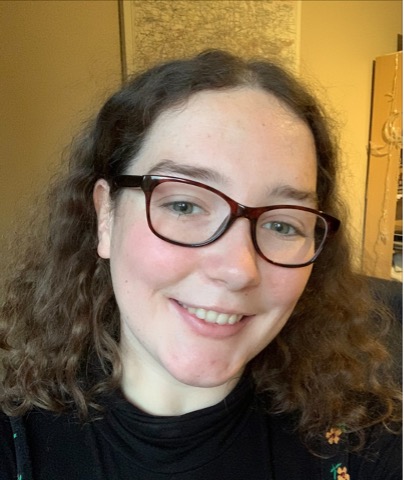This post is part of our Research Initiation Scheme for 2020-2021.
From Paris to London to Queen’s, we caught up with Laura Kennedy to learn about her global PhD French project and her advice for undergraduates considering postgraduate study.
Q. What has your journey to PhD been like?

It’s been enjoyable, but unexpected. My B.A was in French studies at the University of London Institute in Paris. In my final year, I took a French colonialism class, and became really interested, particularly in Algeria. My interests have always been in literature and postcolonial literature was the perfect overlap. I did my final year dissertation on Kamel Daoud and his book Meursault, contre-enquête. The next step for me was to get a theoretical base of postcolonial scholarship. Once I graduated, I worked for a year in Paris and researched Masters programs. I found SOAS University of London. They did a Masters in Comparative Literature of Africa and Asia which I completed in 2020. SOAS was a watershed moment for me academically; I could focus in on my interests which I came to realize were language politics and postcolonial novels. Once I realized this, I put PhD proposals together – I wasn’t going to stop after the Masters. I felt like I would be an outsider coming to Queen’s at PhD. I’m happy to be mistaken on that. Within weeks, I felt welcome and part of the community.
Q. What has been interesting you recently?
During my Masters, I became interested in how language can be utilized in postcolonial contexts by people that were once colonized by the language that they’re now using. My PhD looks at language politics in Francophone and Anglophone postcolonial novels in postcolonial regions across the world; I’m currently focusing on the Caribbean. What interests me is how, if at all, novelists can manipulate and reclaim languages that were traditionally elite colonial ones and how they’re using French and English in their novels as weapons of anti-imperialist protest. My project is mostly about postcolonial novels, but also looks at how language interacts with other socio-historical markers. This is the challenge and the pleasure of a PhD – it’s very liberating thing to follow tangents and recognize that what you once thought was absolute is not the case.
Q. What does your average day look like?
Getting used to the shift in how we view progress at PhD was challenging for me; as the project evolves, so do you. You have complete autonomy over how you spend your time. I’m lucky: I wouldn’t have any problem telling my supervisors if I didn’t understand something or if I was feeling stressed. Every three weeks we’ll meet for a chat over a piece of work. For me, I can break it down into mini essays. It depends whereabouts in the three weeks I am whether I’m spending time writing, reading, or planning.
Q. Is there any advice you would give to final years considering postgraduate research?
If you decide to pursue postgraduate learning, keep an open mind and let yourself be drawn to areas of work that may not be obviously in keeping with your own. I took a few open modules in fields like anthropology during my Masters. They were the most enlightening courses I’ve taken and have informed my work. I’d advise researching different institutions and their courses – traveling to different countries or moving institutions isn’t for everyone, but I benefited from that hugely. Don’t be afraid to wander into slightly different fields if they interest you; it could just be this divergence that leads you to your PhD topic. I’m happy to talk to anyone with any questions via email at lkennedy39 -AT- qub.ac.uk.
Interview by Lauren McShane, final-year undergraduate in French and Spanish